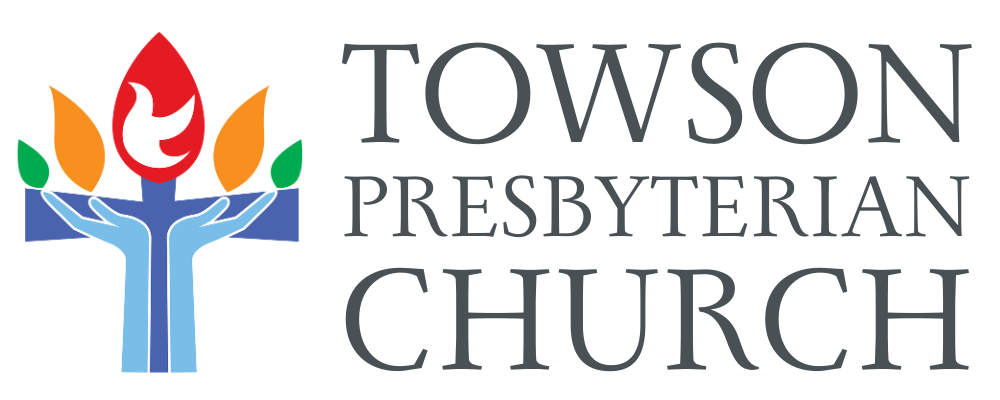I’m Katie Cashin and I’ve been attending Towson Presbyterian Church for three years, have been a member for two and today, before I share with you a snapshot of my faith journey, we need to understand three things about me.
The first is that I’m a recovering first born and while I’m usually fine, I do sometimes fall off the wagon and believe I know everything despite any evidence to the contrary.
The next is that I have a concerning number of ordained Presbyterian ministers in my family, including both of my parents who co-pastored a new church development in Boston during- what my therapists have told me were- my most formative years. All of this is to say that this experiences made me very comfortable and gave me a sense of competency in the conversations about church, faith and God.
The last thing we need to know is that my graduate studies were in pastoral counseling, which only means that in my office across the street I have a piece of paper hanging on the wall that leads me to believe I know everything about church, faith, and God.
But really, my experiences throughout grad school did manage to create space in me for a little more daylight and grace. Still, soon after graduating, I walked into my first day on the job as the Spiritual Development Coordinator for Saint Vincent’s Villa confidently convinced that I was there to be the bearer of good news to these children whose situations ranged from those who needed the behavioral supports of a residential treatment center, to those who had survived horrific abuses that I will honestly, never be able to fully imagine.
My position’s responsibilities included conducting spiritual-trauma assessments with each child and then incorporating this information into their treatment plans. What we really wanted to know was how the child viewed God and how the child believed God viewed her or him. I was also tasked with leading 3 weekly Therapeutic Worship Experiences every Sunday- in other words, group therapy in the center’s chapel. The work was what I now understand to be a holy experience. I know this because it was some of the hardest work I have ever done and I wanted to quit at least twice a week.
I’m also certain that something sacred was going on because it was a transformative experience; during my time at Saint Vincent’s I lost my (figurative) job as resident expert on all things church. And I can remember the exact moment I was “let go.”
I understood 90% these children had multiple, significant mental health and behavioral diagnoses by the age of 7. I also understood that worship can awaken feelings of vulnerability for many of us, and that vulnerability has some surprising symptoms. This is why before starting our weekly groups I would pray “Dear God, please let us get through the next thirty minute without David punching someone or Charles broadcasting his favorite profanities during the prayer. Amen. ”
One day while leading a lesson on “honesty” several boys in the back of the chapel began to pipe up. In an effort to diffuse the situation before it escalated I moved closer to the group as I droned on about how God wants to hear and see our truths, but my plan wasn’t working. My pearls of wisdom on truth-telling were being drowned out by laughter. Frustrated, I finally asked the boys “is there something you want to share with the group?” which we all know is adult-speak for, “zip it.” But they did just the opposite.
The oldest boy named Malachi- like the prophet- squared up to me and said “where I come from, you tell the truth, you get shot.” In the fog of my comfort and competency, I was caught way, way off guard. I’m pretty sure my response went something like “oh.” I thanked him for educating me on his experience, which I came to learn was the experience of so many children in that room.
Malachi’s truth changed the way we did things from then on. The stories I had “known” since childhood were now cracked wide open; the parable of the sower wasn’t so much about tending our own good soil as it was about a God who plants seeds in all environments. The feeding of the 5000 was more than a nice lesson about sharing, it was radical to the point of absurd generosity. And every Christmas Eve we retold the story of how God chose to enter the world through a displaced family, a teenage mother and an unexpected child.For most of my life I had believed the good stuff, the stuff worthy of attention, was found in the answers to the big questions we’re left with through these stories. I left St. Vincent’s pursuing the questions themselves. This has made my faith feel a little messier, it’s deeply informed my work as a trauma therapist and it led me to a congregation that doesn’t dare shy away from truth-telling or big questions.
